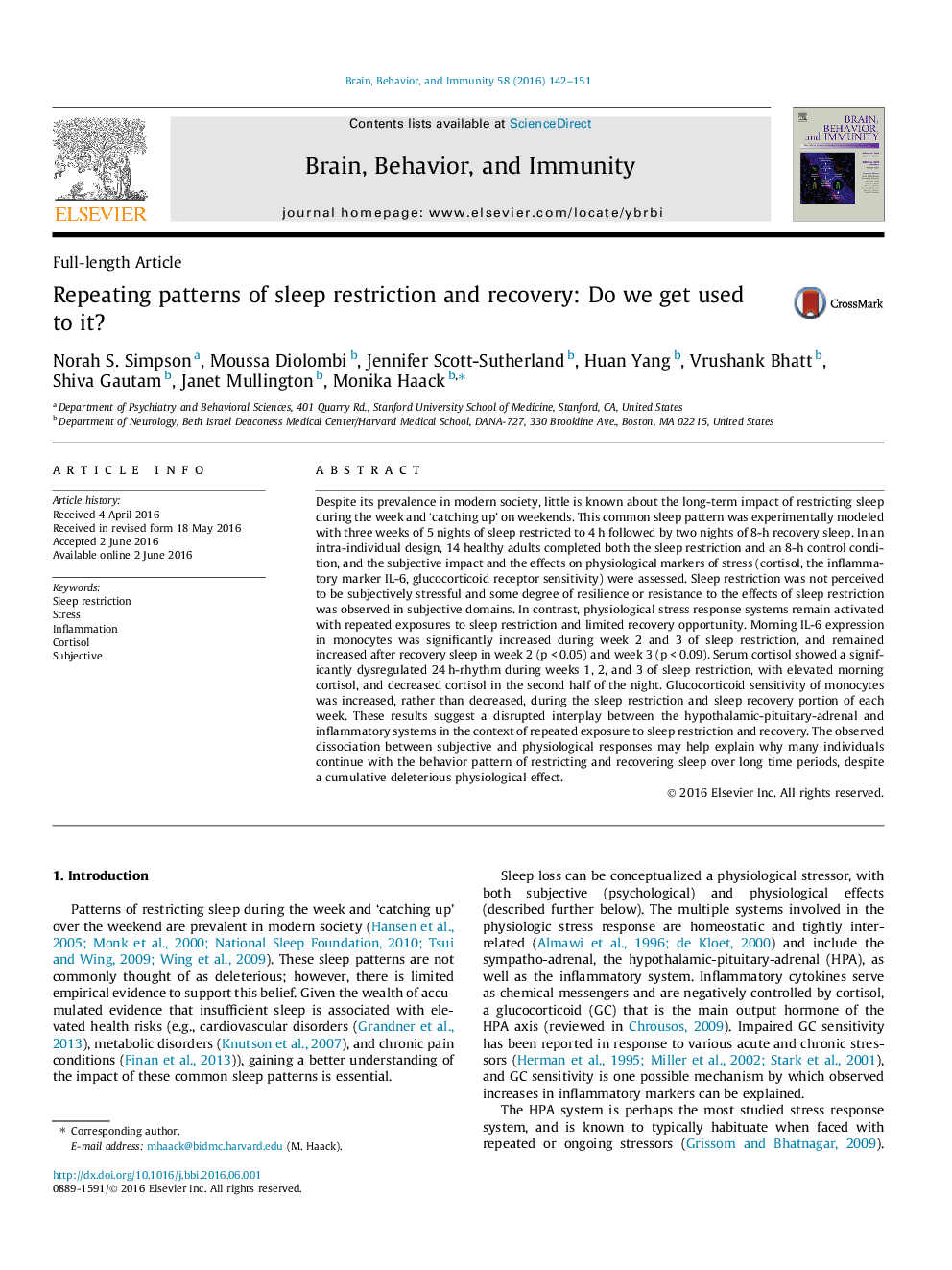| کد مقاله | کد نشریه | سال انتشار | مقاله انگلیسی | نسخه تمام متن |
|---|---|---|---|---|
| 5040975 | 1473909 | 2016 | 10 صفحه PDF | دانلود رایگان |
- Common patterns of restricting sleep during the work week and 'catching up' on weekends were experimentally modeled in the laboratory environment.
- Repeated sleep restriction was not perceived as subjectively stressful but did activate physiological stress responses.
- Limited recovery sleep did not restore these physiological stress responses to baseline.
- The dissociation between subjective and physiological stress responses may help explain why individuals continue with these sleep patterns.
Despite its prevalence in modern society, little is known about the long-term impact of restricting sleep during the week and 'catching up' on weekends. This common sleep pattern was experimentally modeled with three weeks of 5 nights of sleep restricted to 4 h followed by two nights of 8-h recovery sleep. In an intra-individual design, 14 healthy adults completed both the sleep restriction and an 8-h control condition, and the subjective impact and the effects on physiological markers of stress (cortisol, the inflammatory marker IL-6, glucocorticoid receptor sensitivity) were assessed. Sleep restriction was not perceived to be subjectively stressful and some degree of resilience or resistance to the effects of sleep restriction was observed in subjective domains. In contrast, physiological stress response systems remain activated with repeated exposures to sleep restriction and limited recovery opportunity. Morning IL-6 expression in monocytes was significantly increased during week 2 and 3 of sleep restriction, and remained increased after recovery sleep in week 2 (p < 0.05) and week 3 (p < 0.09). Serum cortisol showed a significantly dysregulated 24 h-rhythm during weeks 1, 2, and 3 of sleep restriction, with elevated morning cortisol, and decreased cortisol in the second half of the night. Glucocorticoid sensitivity of monocytes was increased, rather than decreased, during the sleep restriction and sleep recovery portion of each week. These results suggest a disrupted interplay between the hypothalamic-pituitary-adrenal and inflammatory systems in the context of repeated exposure to sleep restriction and recovery. The observed dissociation between subjective and physiological responses may help explain why many individuals continue with the behavior pattern of restricting and recovering sleep over long time periods, despite a cumulative deleterious physiological effect.
Journal: Brain, Behavior, and Immunity - Volume 58, November 2016, Pages 142-151
